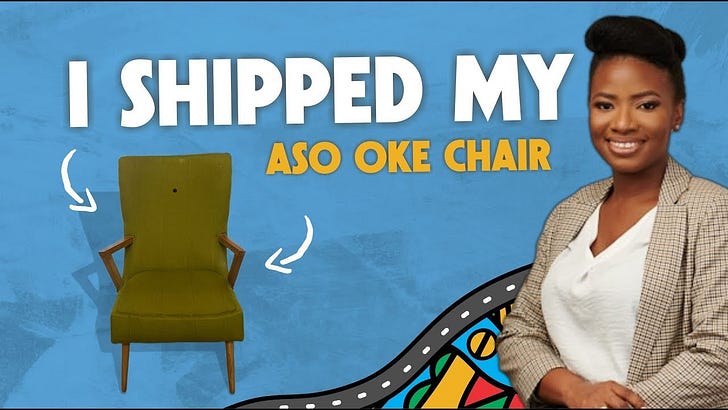- Efikó
- Posts
- 3-2-1 Fridays: Using ChatGPT for adversarial writing, content information gain scores, and writing great prompts.
3-2-1 Fridays: Using ChatGPT for adversarial writing, content information gain scores, and writing great prompts.
Your weekly content marketing inspiration
Hey friend, welcome to today’s issue of Efikó. This newsletter by Dozie Anyaegbunam helps you curate content marketing and life insights from across the web. Anyway, hello, it’s good to see you. You’re doing great 😀
Hallooooos,
It’s the last day of the month. The last day of Q1.
Who’s excited?
If you’re not, I am. Spring is here. And winter is gone.

I also dropped Ep. 3 of The Newcomers Podcast last night. Ukwori was a treat of a guest. Plus, she runs an immigration consultancy if you are looking for professional help immigrating to Canada. Please give it a listen when you can.
OK, content marketing.
Estimated reading time: 3 minute, 10 seconds.
1. Using ChatGPT for adversarial writing
Insight from Arvid Kahl.
Let’s imagine you don’t have time to give your draft time to breathe before turning it in.
Well, Arvid shared a prompt that can get ChatGPT to help you find any inconsistencies or confusing sections.
Think of it as your developmental editor.
Here are images of the prompts he used:


I think this is so dope.
2. Improving your content’s information gain score
Insight from Manuel Diaz.
First off, what is information gain?
Short answer: Information gain scores state how much more information one source may bring to a person who has seen other sources on the same topic. Pages with higher information gain scores may be ranked higher than pages with lower information gain scores.
You can read the whole thing by the late and great SEO guru Bill Slawski here:
And in a world where anyone can whip up an article in a few seconds, finding ways to improve your content information gain scores could mean the difference between content-influenced leads and crickets.
Manuel has an interesting process:
Find unique information buried in indexed PDFs, PPTs, or Word Docs on Google Search.
One of the reasons I love to thumb through Slideshare when writing.
How do you do this?
Imagine for a moment you were working on an article on anxiety.
If you went to the top-ranking pieces, you get something of this sort:

Now, this can help cover the right keywords and sections. But this isn’t enough if you want to create something that provides readers and Google with new information about the topic.
Then we change the search operator to " target keyword+ filetype:pdf" or "target keyword + filetype:ppt.”

Cognitive skills for anxiety? What’s that? How does that change my piece?
Pro tip from Manuel: Word Docs don't always yield the best results from my experience.
Manuel’s tip on Word Docs isn’t surprising. I would think you would find mostly school projects if you searched for Word Docs.
Now, go increase your informational gain scores and topical relevance.
3. Writing great prompts
Insight from Kyle Byers.
I suspect prompt engineering is going to become a career soon because the quality of output from an AI tool is dependent on the quality of your prompt.
Kyle Byers of Semrush shared a great prompt example I think you all should swipe:
Instead of “"Write an outline for a blog post about on-page SEO"
Use
"Act as an SEO genius who is great at distilling complex information down to easy-to-understand, actionable blog posts that rank number 1 on Google. Create a document that outlines a blog post covering the topic "on-page SEO". Display which headings should be H2s, H3s, and H4s by using <h2> and </h2><h3> and </h3><h4> tags around them. Only include the headings, not the paragraph text. Also give me 5 ideas for meta title tags for the same blog post, each using 60 characters or less."</h4>
Boom. Specificity is everything.
I would create a notebook and keep a swipe file of all the great prompts you see out here on the interwebs.
Two things I am thinking about
i.
📉Real-world example of the impact of creating full blog posts/content with ChatGPT... I chatted with a company today that created blogs exclusively with generative AI, and things worked and then quickly didn't.
— Nate Matherson (@NateMatherson)
10:18 PM • Mar 27, 2023
ii.
Few things are more important in life than avoiding the wrong people.
It’s tempting to think that we are strong enough to avoid adopting the worst of others, but that’s not how it typically works.
We unconsciously become what we’re near.
If you work for a jerk, sooner or later… twitter.com/i/web/status/1…
— Shane Parrish (@ShaneAParrish)
2:05 AM • Mar 30, 2023
One book recommendation
My recommendation this week is a newsletter - The Mental Health Breakdown by Amber Rhodes. If you’re looking for a practical, genuine, and heartfelt perspective on mental health, Amber Rhodes is your go-to person.
Thanks for reading to the end. You all make writing this newsletter worth the trouble.
Be good out there. If you can't be good, be careful.
I'll return on 3/31.
Dozie.
P.S.: If you enjoyed this, please consider sharing it on LinkedIn or with a friend.

